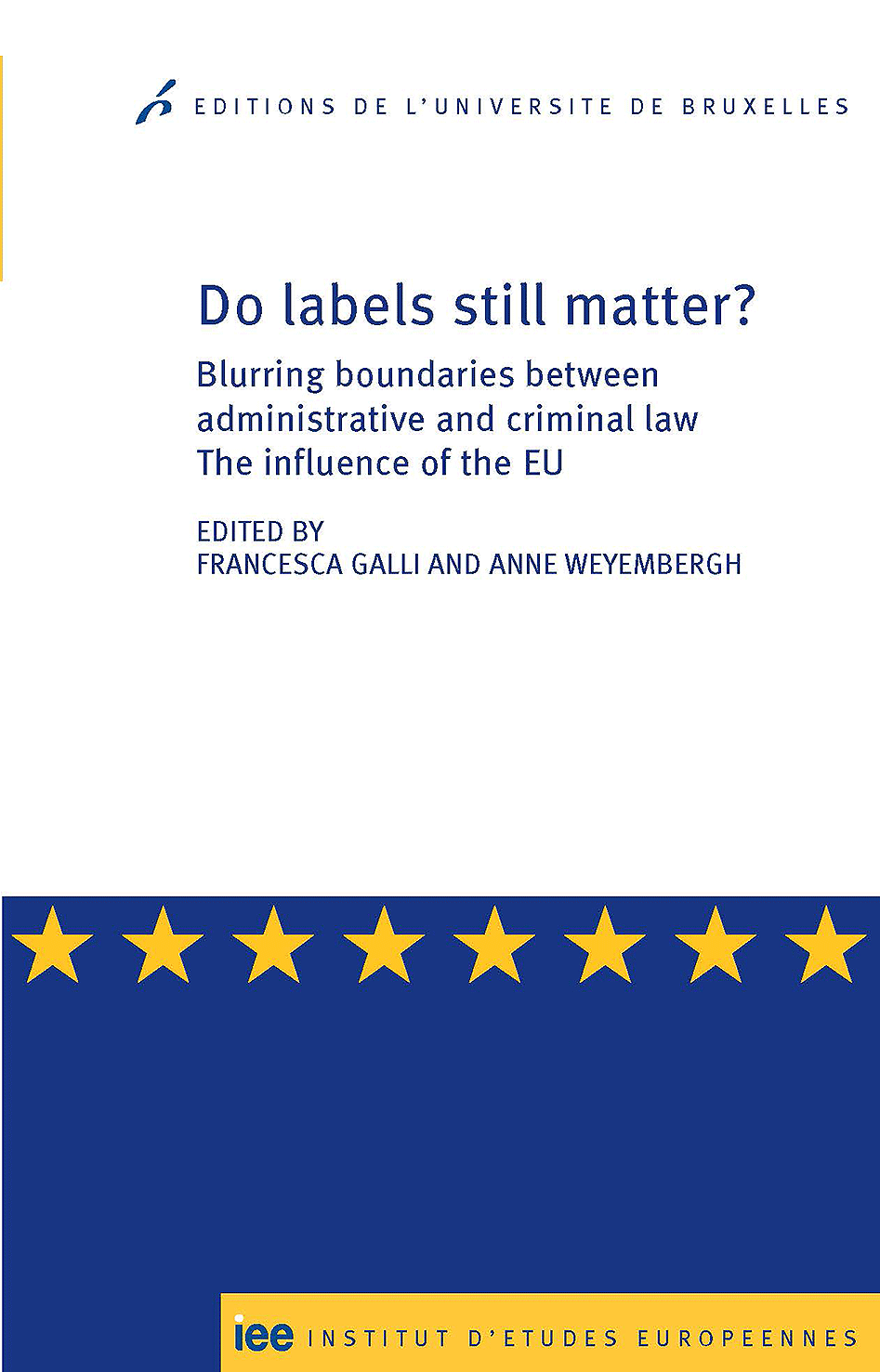Do labels still matter? Blurring boundaries between administrative and criminal law. The influence of the EU

Criminal law has considerably evolved in the last few decades.A number of new trends have challenged the traditional features of “modern criminal law”. One of the new trends affecting criminal justice systems is the so-called “Europeanisation process”, which is the result of the growing intervention of the EU in the area of criminal law. Another new trend which criminal law and other legal disciplines are facing is the increasingly blurred dividing line between legal categories. Various dimensions of this unclear division between categories have been identified in legal literature, in particular between administrative and criminal law.This book aims to study the combination of the two abovementioned trends and their impact on criminal justice systems. The hazy line between administrative and criminal law has been around for a while and has grown independently of the European Union. Up until now, it has mainly been analysed at the national level in a sector by sector approach. This research aims to go beyond such an approach to the topic and sets a systematised assessment of the situation in motion. The main questions that this book tackles are whether and to what extent the EU contributes to the blurred line and whether it tries to restrict it, hold it in check and/or organise it.In order to reflect upon such issues, the book is divided into two parts.The first part focuses on an analysis of selected case studies, namely different types of crimes where the EU plays an increasing role: trafficking in human beings, terrorism, protection of the EU’s financial interests, market abuse, environmental offences and competition. These case studies are ordered into four different categories based on how broad and significant the intervention of administrative measures/actors is in the fight against crime.The second part of the book is of a more general nature. Following an article concerning the organisation of the coexistence of administrative and criminal law at the national level, the other contributions focus on the EU level and aim to assess the influence of the EU on the existence and development of the hazy line between administrative and criminal law. Most of them show that the EU somehow contributes to the lack of clarity. They tend to identify the main reasons for this and the potential problems caused by the blurred line in terms of individual procedural safeguards and the effectiveness of the fight against crime.This book is the result of cooperation within an international team mainly composed of academics and researchers who are members of ECLAN (the European Criminal Law Academic Network) and of practitioners working at the national or EU level.
| Type | Book |
|---|---|
| Identificateur | urn:isbn:978-2-8004-1577-2 |
| Language | En |
| Length | 258 p. |
| Themes |
|
| Discipline(s) |
|
| Publisher | Editions de l'Université de Bruxelles |
| Publication date | 2014-11 |
| ULB Institutional Reference | http://hdl.handle.net/2013/ULB-DIPOT:oai:dipot.ulb.ac.be:2013/176241 |

